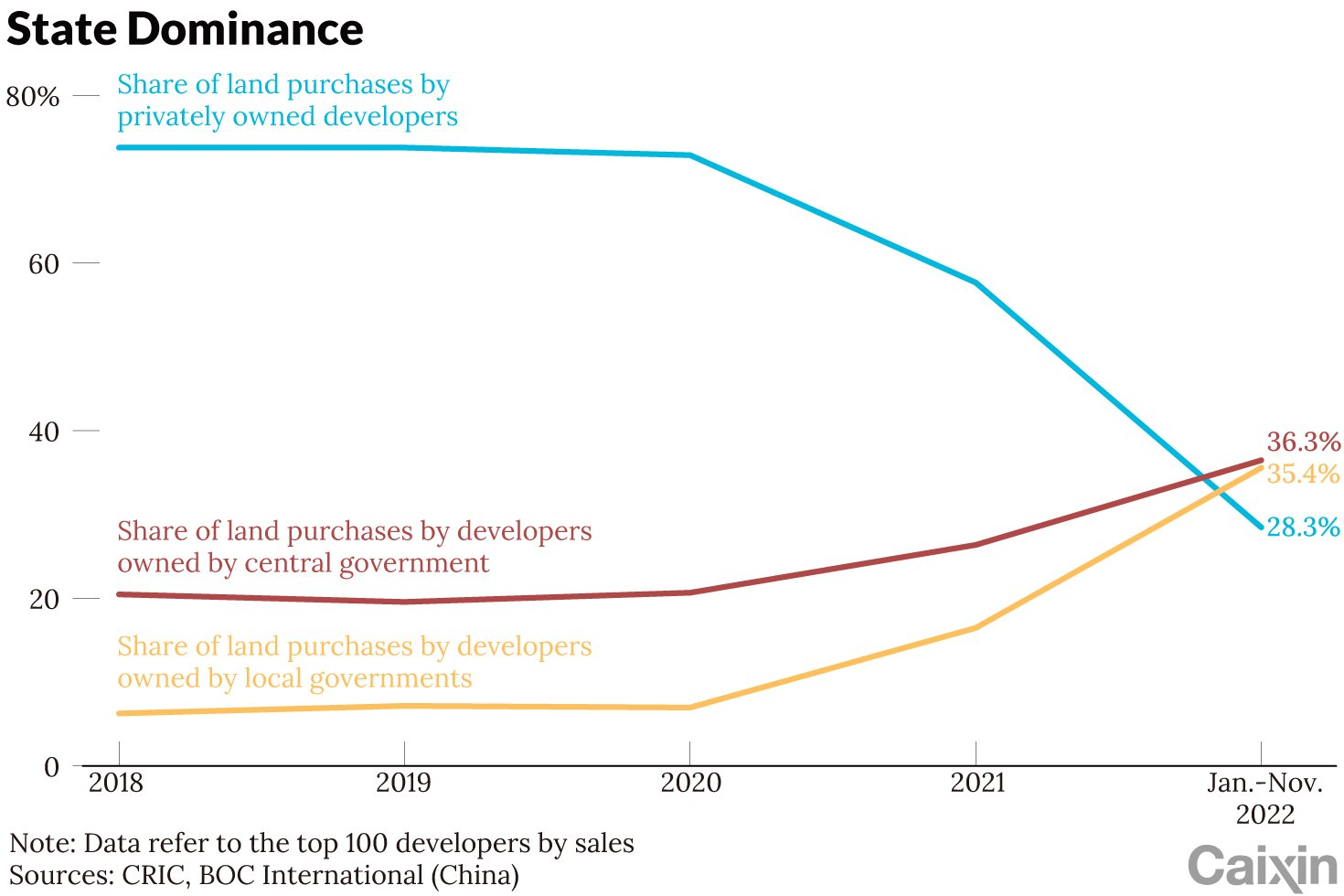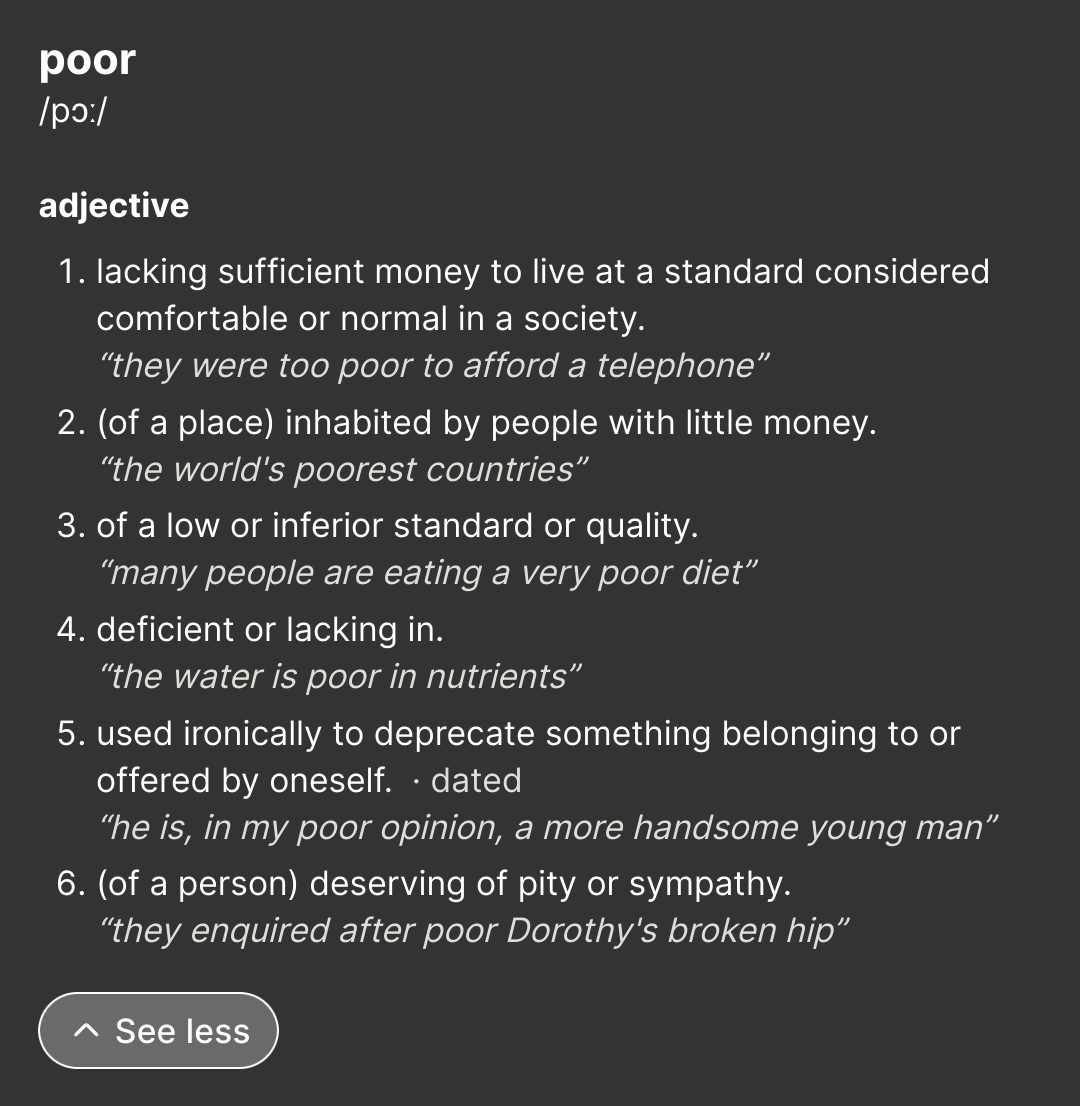
I’m sure there is a lot more nuance and context here that I don’t know about, but at face value that’s a pretty cool solution and I like it. The question is: how much of these developments were greenlit by government officials who are now refusing to foot the bills?
It sounds good because it sounds like the developers are the ones getting fucked over. But that’s not really the case. They already made bank.
Chinas real estate development sector is mostly funded by pre-selling future projects. So the people who bought a unit that now never will be built are the ones truly getting fucked over. And while some of these people are other rich people planning on renting out these units, a big part are just regular people. Only about 25% of the population in China are renting. In some cities the percentage is higher but even in Shanghai and Beijing it’s only around 35%.
So a lot of the people who are getting fucked over by this are people who bought their own home that now will never be finished. On the bright side they probably haven’t paid the full amount yet but for many their entire lifesaving are still gone and saving up enough money to buy a new home will take a long time.
Sure the developers may lose a lot of net worth because their company isn’t worth anything anymore. But they still have way more assets in their possession then they need.
That’s a very thoughtful in depth response. It honestly confuses me to no end that the developers can somehow not afford to complete the projects but were also allowed to sell the properties beforehand. That makes no sense, if I knew Chinese I would be fact checking those statements. On the other hand, such scams rarely do make any sense in retrospect.
The situation is way more complicated, it isn’t a simple scam. It certainly didn’t start out that way. The developers fully inteded on building these homes (at least until recently). And the business model was sound and generally works.
Pre-selling of units in apartments/condos is common around the world and a key part of securing the cashflow for the project. Chinese developers were operating just as anywhere else. The model is - use internal funding + pre-selling to build the project, then sell the remaining units once done. Use the money from selling the finished units to pay for the next project. Since demand for homes was super high, they started planning the next project before the first one was finished. Same as anywhere else in the world. The issue started that finished projects didn’t sell the remaining empty units at the expected rate. Eventually the capital of the development company was mostly used up and the cashflow from finished projects dried up. So they had a lot of half built projects and the only money available was that from projects even further in the future. And that’s not sustainable and here we are now.
There are three big factors why the finished units didn’t sell.
-
Pre-selling is cheaper. So homeowners opted for that. You usually are given a decent discount and have much easier payment terms. You often have a few years of monthly payments before the lump-sum is due. So by the time you need that mortage you already have 10-30% equity in the unit. Making the mortage lower and easier to get. And if your financial situation changed, you can even sell the unit before the lump-sum is due.
-
China has rather restrictive rules on owning land. In many muncipialities, and especially in big cities, people are only allowed to own 1 or 2 residential homes (there are ways around it). Foreign entities aren’t allowed to own residential properties for investment purposes in general. So unlike in the west where you have a conglomerate of investors buying up all the homes with the plan of making their money back by renting them out, Chinese investors have to rely on people buying their own home for personal use. Which means there is no real option of selling empty units on mass for a lower price.
-
The rate of rural to urban migration slowed down. In the past few decades China experienced some of the fastest growth of urbanization ever. Tons of people coming from the countryside to live in the city. This created the illusion of near limitless demand for homes. But now it’s very likely that the Chinese government lied about their population. So the demand for homes can’t be as high as expected but on top of that, migration to urban areas has slowed down.
Now a lot of these things have been known for years. And nobody really did anything. So I personally think calling all of this a scam is fair at this point. But the Chinese government could step in and help out their population. If these developers really go bankrupt, the government could just seize all of the empty unsold units and redistribute them to people who got fucked over. It isn’t perfect but it’s better than not having a house. The big question is just, how many of these units are actually habitable. China has questionable building methods to begin with and on top of that many of the buildings were so empty that there was no money to pay for maintainance. So alot of these homes are death traps. And I suppose no home is better than a death trap.
That’s basically the entire definition of what a Ponzi Scheme is, though.
-
how much of these developments were greenlit by government officials who are now refusing to foot the bills?
If we just mean which ones were state-owned (as one commenter said before “privatized gains, privatized losses”), not much
According to even “China collapser” Michael Pettis
 https://twitter.com/michaelxpettis/status/1610265849528717318/photo/1
https://twitter.com/michaelxpettis/status/1610265849528717318/photo/1Then again, it’s Caixin, so you can double-check…
That graph shows the development agreements purchased by government has increased yoy, which contradicts what you just said…?
Well, I thought the nationalizations were more of a response, than the cause of what happened, then again…
I mean, didn’t the whole crisis start from 2020… so I don’t understand the contradiction in my argument here…
Elaborate it a bit more?
If you want privatized gains, you must accept privatized losses. No risk, no reward.
Unlike U.S. bailing out “too big to fail”, China says “fuck you - we keep the tax dollars for us.”.
Near perfect capitalistic communism as is possible.
It’s actually quite funny how people foresaw the downfall of the Chinese economy following Evergrande, and it just kinda carried on as normal because the Chinese govt refused to bail them out. For their faults, China handled that better than a whole host of socalled “fiscally responsible” western economies ever would have.
Property developers in China, unlike banks in the US, are not the backstop of the economy. They are not too big to fall: it’s just that their distressed assets need to be managed to minimize losses to their customers.
General Motors isn’t the backstop of the economy and they were rescued too.
A massive corporation going out of business sucks in the short term: people lose their jobs, among other financial woes. But if you keep bailing out failing corporations, you harm your economy in the long run because you’re keeping a company artificially on life support using budget funds. The company will continue to fail and lose money, setting your country back years in terms of productivity and innovation, and your economy will fold inwards.
Not only that company but any other one is going to be incentivized to be irresponsible with their accounting and financial practices. What’s going to happen if Google or Microsoft broke? Are they going to be rescued too?
Meanwhile here in italy when a major company fails and goes bankrupt because of shitty management, corruption and greed, we first “save” it with public funds, then sell it to someone else to profit off of it
Normalize not bailing out failing big businesses, hope we can bring that custom over here.
Iceland got back on its feet after 2008 with a quickness because they jailed a bunch of bankers.

Oh the horrors of billionaires not getting their treats 😢
“We will scale up the building and supply of government-subsidized housing and improve the basic systems for commodity housing to meet people’s essential need for a home to live in and their different demands for better housing,” - but what about the profit motive?
Based China
Those silly commies don’t understand that you have to bail out capitalists when they fail.
China need to up their can-kicking game
But what about the poor billionaires 😢
So are they poor or rich? Make up your mind!
See definition 6

I am aware, yes. I should add an /s at the end next time.
No, people need to learn how to recognize sarcasm again.
I disagree. Especially on the internet, it can often be very difficult to say what is sarcasm and what is not. This is mostly because of the wildly diverse opinions that people have.
Wow, actual Moral Hazard?!

God I wish that were us

Common China W

















